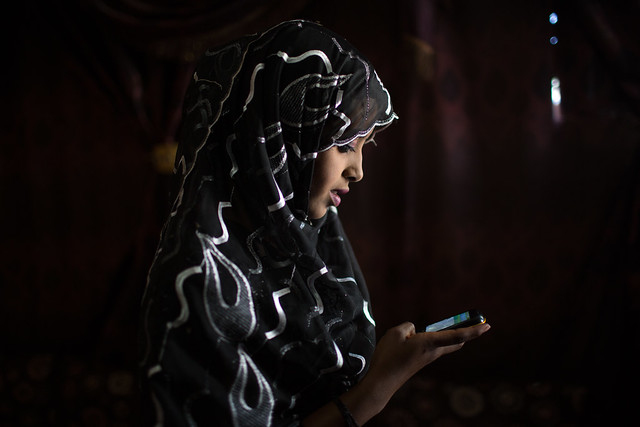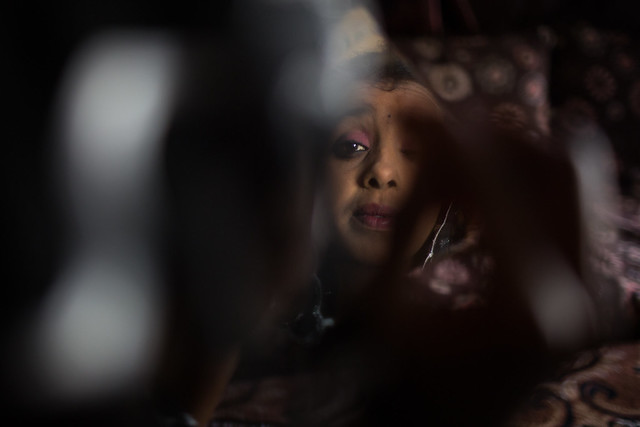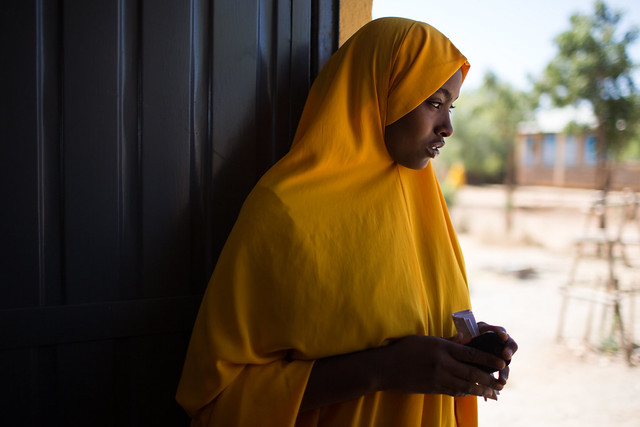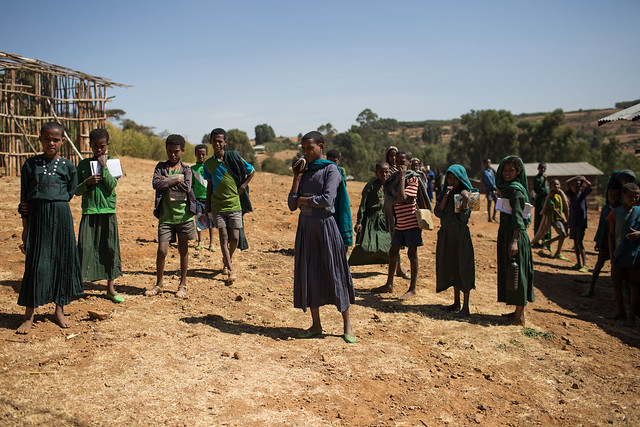20 November 2017, United Nations Conference Centre, Addis Ababa: Today, Ethiopia joined the global World Children’s Day celebrations by giving children high profile roles to become champions of their rights. In line with the event’s theme ‘For children, By children’ child parliamentarians took over the roles of the Ministers of: Women and Children’s Affairs; Health; Education; Water, Irrigation and Electricity; Labour and Social Affairs; and Urban Works and Construction. In addition, children took over the roles of the Attorney General and UNICEF Representative. In their new roles as ‘shadow Ministers’, children shared their ideas on issues that affect their lives.
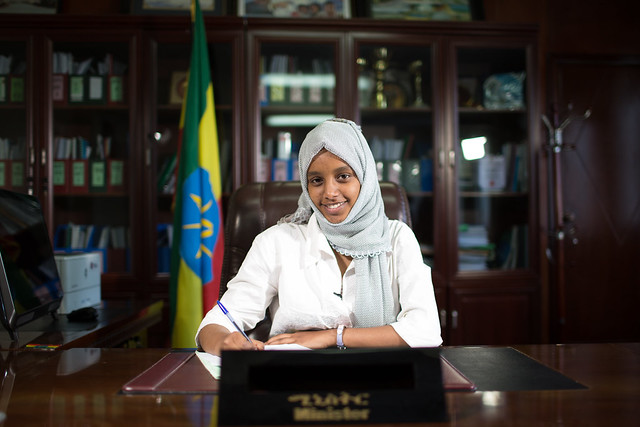
At the event, which was truly owned by children, some of the key recommendations proposed by children include:
- Accelerate efforts to end harmful traditional practices, including child marriage and Female Genital Mutilation/Cutting
- Provide clean water and sanitation services for all children across the country, no matter where they live
- Build more hospitals that are focused on child health and ensure health professionals treat children with care and love
- Involve children in child justice
- Ensure quality education for all children through skilled teachers, including pre-primary education
- Ensure that girls stay in school and finish their education
- Provide more playgrounds and safe spaces, especially in urban and peri-urban settings
- Include children’s voices when adults and local authorities discuss issues that affect children’s lives.
Child parliamentarians from different regions also had an opportunity to discuss issues relevant to children in Ethiopia with shadow Ministers and dignitaries through a Q&A session.
In her opening remarks, H.E Ms Demitu Hambisa, Minister of Women and Children’s Affairs, stated that this year’s World Children’s Day is a day of action for children by children. She highlighted that decision makers need to ensure that children’s voices are heard and reflected in decisions that affect their lives.
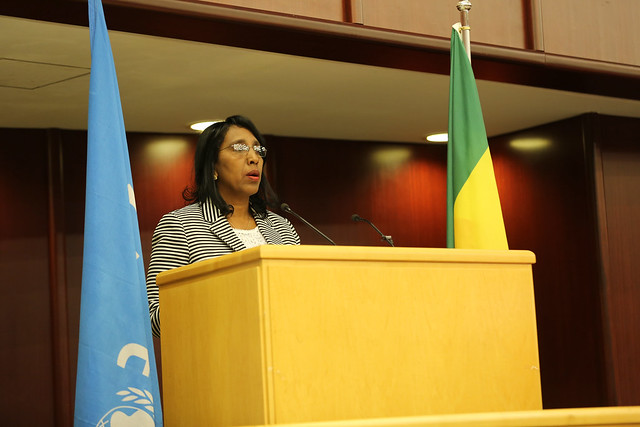
Ms Gillian Mellsop, UNICEF Representative to Ethiopia, emphasising the need for the participation of children said, “Meaningful participation of children is not only a fundamental right – and enshrined as such in the Convention on the Rights of the Child – but is also key to ensuring that decisions made by adults are relevant to the actual needs of children.”
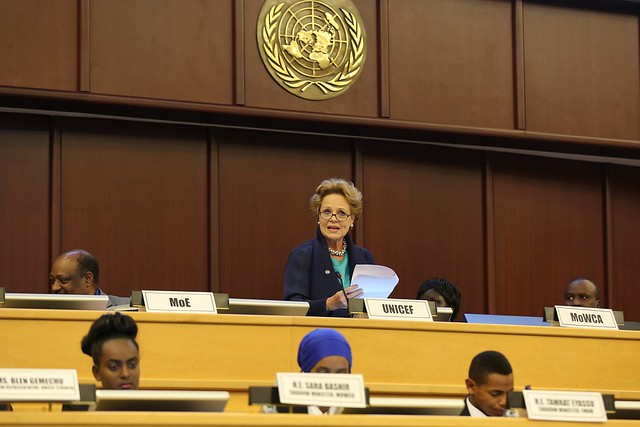
In addition, UNICEF Ethiopia launched its publication ‘Hulem Lehisanat- Always for children’ depicting its 65 years history serving children and women in Ethiopia.
The event highlighted the importance of including children’s voices by providing children with an opportunity to share their own solutions on how to keep every child in Ethiopia healthy, well-nourished, in school and protected.

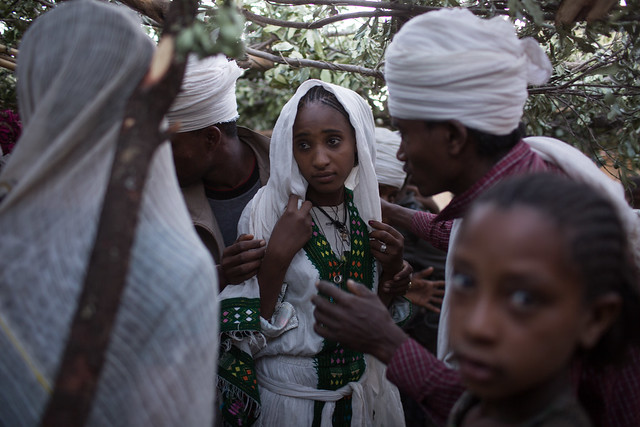
 Her messages on girls’ empowerment comes at a right time when the Government of Ethiopia took a heroic step by making a ground-breaking commitment to end Harmful Traditional Practices (HTPs) including child, early and forced marriage and Female Genital Mutilation and Cutting (FGM/C) in the country by 2025. To this end, UNICEF and its partners are supporting the Government to improve the quality of lives of Ethiopian girls and women and, ultimately, to accelerate progress for the country at large. In addition, this feeds into the proposed Sustainable Development Goal (SDG) 5 on achieving gender equality and empowering all women and girls, as part of the Post-2015 development agenda.
Her messages on girls’ empowerment comes at a right time when the Government of Ethiopia took a heroic step by making a ground-breaking commitment to end Harmful Traditional Practices (HTPs) including child, early and forced marriage and Female Genital Mutilation and Cutting (FGM/C) in the country by 2025. To this end, UNICEF and its partners are supporting the Government to improve the quality of lives of Ethiopian girls and women and, ultimately, to accelerate progress for the country at large. In addition, this feeds into the proposed Sustainable Development Goal (SDG) 5 on achieving gender equality and empowering all women and girls, as part of the Post-2015 development agenda.